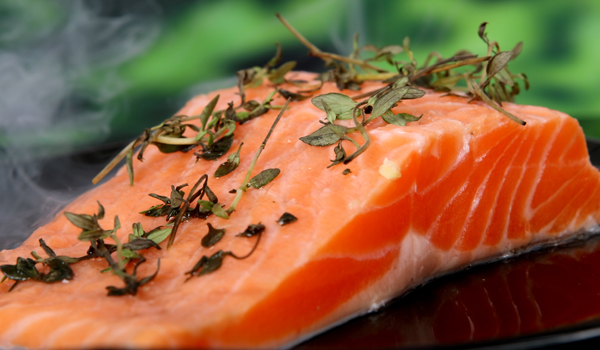Eating Healthy Fats During Pregnancy May Reduce Baby's Autism Risk

Women who eat certain types of "healthy fat" during pregnancy may reduce their risk of having a child with autism, a new study suggests.
In the study, women who consumed high levels of linoleic acid — a type of omega-6 fatty acid found in vegetable oils, nuts and seeds — were 34 percent less likely to give birth to a child with autism compared with women who consumed low levels of the nutrient.
In addition, women who consumed very low levels of omega-3 fatty acids — which are found in fish — were 53 percent more likely to have a child with autism compared with women who consumed average amounts.
"Our results provide preliminary evidence that increased maternal intake of omega-6 fatty acids could reduce risk of offspring [autism spectrum disorder], and that very low intakes of omega-3 fatty acids and linoleic acid could increase risk," the researchers at the Harvard School of Public Health wrote in their study.
The study found only an association, and not a cause-and-effect link, between pregnant women's fatty-acid consumption and a decreased risk of having a child with autism. In addition, the study was small, and future research will be needed to confirm the results, the researchers said.
The reason for the link is not known, but these types of fatty acids have been shown to be important for brain development of the fetus, the researchers said. A woman's supply of fatty acids is used by the fetus toward the end of pregnancy, and is needed for the first two months of life.
The March of Dimes recommends that pregnant women consume about 200 milligrams (0.007 ounces) of the omega-3 fatty acid Docosahexaenoic acid (DHA) per day. (One 5-ounce serving of salmon provides about 2,100 mg of DHA, so one serving weekly means a person's daily intake would average 300 milligrams.) Though mercury in fish is a concern during pregnancy, fish such as salmon, herring and sardines tend to be low in mercury, and pregnant women can safely eat up to 12 ounces per week, the March of Dimes says. Nuts and vegetable oils (e.g., canola oil, soybean oil and olive oil) can also be good sources of healthy fatty acids.
Get the world’s most fascinating discoveries delivered straight to your inbox.
The new study included 317 mothers who had a child with autism and 17,728 mothers who had a child without autism. Participants answered questions about the types of food they ate. The researchers noted that 5,884 women in the study completed the questionnaire during their pregnancy, while the rest completed it within about a year after being pregnant.
The researchers noted that consuming high amounts of omega-3 fatty acids did not further decrease the risk of autism compared with the risk for women who consumed average amounts.
This suggests that although getting too little omega-3 fatty acids may increase the risk of autism, once a certain threshold is reached, further consumption doesn't provide an extra benefit, the researchers said.
The researchers took into account other factors that might have influenced the risk of autism, such as the mother's age, total calorie intake and smoking status during pregnancy. But it's possible that other factors not included in the study may explain the link.
The study was published online June 27 in the American Journal of Epidemiology.
Follow Rachael Rettner @RachaelRettner. FollowLiveScience @livescience, Facebook & Google+. Original article on LiveScience.com.

Rachael is a Live Science contributor, and was a former channel editor and senior writer for Live Science between 2010 and 2022. She has a master's degree in journalism from New York University's Science, Health and Environmental Reporting Program. She also holds a B.S. in molecular biology and an M.S. in biology from the University of California, San Diego. Her work has appeared in Scienceline, The Washington Post and Scientific American.


